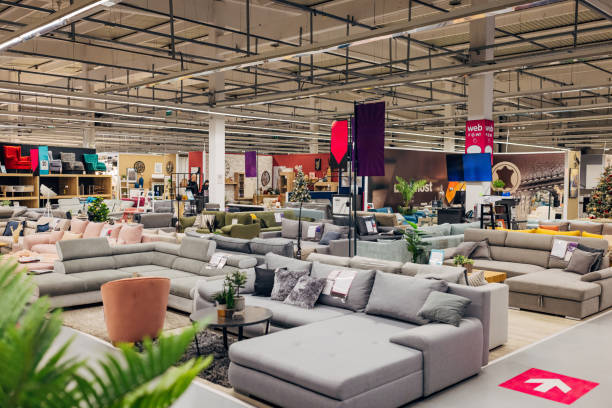Brass Turned Parts vs. Other Materials – Guide
4
0
·
2025/08/27
·
5 mins read
☕
WriterShelf™ is a unique multiple pen name blogging and forum platform. Protect relationships and your privacy. Take your writing in new directions. ** Join WriterShelf**
WriterShelf™ is an open writing platform. The views, information and opinions in this article are those of the author.
Article info
Categories:
⟩
⟩
Tags:
Total: 1224 words
Like
or Dislike
More from this author
More to explore












Material selection is frequently the key to success or failure in precision engineering and manufacturing. Whether you are producing turned components as plumbing, contracting, electronics, automobile parts, or décor hardware, material choice will define strength, cost, life span, and performance.
Some of the most popular are Brass Turned Parts, together with stainless steel and aluminum. All materials have unique characteristics, advantages, and drawbacks.
In this blog, we will review Brass Turned Parts vs. Other Materials with a detailed comparison to help you in selecting the material that fits your specific applications in the Indian market.
Why Material Choice Matters in Turned Parts?
CNC lathes or automatic turning machines make turned parts. Turned products are readily employed as fittings, connectors, fasteners, and as precision special-purpose stock. The parts tend to have demanding mechanical loads, environmental, and electrical service, so material choice as well as performance of the component affects the cost of the product and working life.
Brass Turned Parts: Why They Are Popular in India
Brass Turned Parts hold high relevance to many industries due to their:
Good machinability: Compared to other materials, brass consumes less time to cut and manipulate, hence lowering the cost of manufacture.
Corrosion resistance: It is resistant to water and air conditions, good in performance, and hardware.
Aesthetic details: Golden finish, which is either polished or left patinated.
Electrical/Heat-Transfer: High conductivity for electrical and heat-transfer.
Price: It is not as expensive as plastic and steel, and it is long-lasting like plastic.
These are the reasons why brass is frequently referred to as the ideal material by Indian manufacturers who have a desire to have strength and durability but do not intend to overpay.
Comparing Brass Turned Parts vs. Other Materials
Feature
Brass Turned Parts
Stainless Steel Turned Parts
Aluminum Turned Parts
Machinability
Excellent – easy to cut and shape, reducing cost.
Harder to machine, needs strong tools.
Very easy, fast processing.
Strength
Moderate – suitable for standard fittings and connectors.
Much higher, can bear heavy-duty and high-pressure use.
Normal but overall weaker.
Corrosion Resistance
Strong in water/air, but may tarnish in harsh chemicals.
Superior – resists rust even in tough environments.
Good, but less reliable in saltwater or acidic areas.
Weight
Heat adds stability.
Heavy, sometimes denser than brass.
Very light – about one-third the weight of brass/steel.
Cost
Moderate – machining efficiency lowers expense.
Pricier and Durable
Pocket-friendly
Aesthetics
Finished look, and easy polishable
Modern silver-gray, resists tarnish.
Silvery-white, can be anodized in colors.
Conductivity
Excellent thermal & electrical conductivity.
Low conductivity.
Very good for electronics and heat transfer.
The comparisons between Brass Turned Parts and are as follows: Another type of materials, such as Stainless Steel, Aluminum, and Plastic, was made to determine which material would perform better in terms of performance:
1. Brass Vs. Stainless Steel
Strengths: Stainless steel is more durable and able to resist greater pressure.
Corrosion resistance: Both are known to withstand corrosion; ever sta, stainless steel fares better in extreme cases like, in a marine environment.
Machinability: Brass is easier to machine than Stainless steel, resulting in lower production costs and shorter production times. Stainless steel usually incurs higher tooling costs.
Price: Stainless steel tends to be lower in price compared to brass, ch makes brass better suited to those in India.
Best Use: Brass parts suppliers often recommend brass for plumbing fittings due to its corrosion resistance and durability. Whereas, stainless steel is perfect for heavy-duty applications.
2. Brass vs. Aluminum
Weights: Brass is solid whereas Aluminum is a bit lighter. Aluminium would be fitted for aerospace or automotive industries.
Advantage: Brass is stronger than aluminum and can better withstand rolling friction and pivoting.
Conductivity: Conductivity is also better in brass than in aluminum, thereby being favored over most parts.
Corrosive Resistance: Both materials come under this but we can except a better performance by Brass in water.
Cost: Aluminum is also less expensive than brass, but it will not last as long.
Best used in: Aluminum is perfect to be used when the use needs lightweight parts. Brass is perfect when the use requires plumbing and sanitary fixtures are required, and decorative hardware.
3. Brass or Plastic
Resistance: Brass is far stronger and sturdy when compared to plastic.
Temperature Tolerance: Plastic has the potential to deform when raised in temperature, but the brass will remain firm.
Corrosion Resistance: Plastic is not subject to corrosion, but can ot hold up mechanically as well as brass.
Price: On one hand, the cost of plastic is the lowest of the three, and where impact or low loads are based, it is the most appropriate to use. Brass, on the other it is costly and more durable.
Appearance: The brass is more attractive and projectable in choice, and plastic is simple and basic in many cases, and also does not correspond to the expectation of a high-quality product.
Best for: Plastic is good for disposable or lightweight applications, and brass is more suitable for applications with high wear and tear, where durability and quality are desirable.
Applications of Brass Turned Parts in India
India's brass versatility makes it an ideal material used in industries such as:
Plumbing: Uses in valves, taps, and pipe fittings due to its unique characteristics of corrosion resistance.
Electricals: Used as connectors, switches, and terminals due to brass's good conductivity.
Automotive: Used in small precision parts, such as gears and fasteners.
Electronics: Connectors, housings, and cable glands.
Decorative Hardware: These are used on decorative hardware like handles, knobs, and hinges.
Brass Turned Parts are employed as a material in many industries in India due to this perfected combination, which provides strength, economies, and appearance.
Pros and Cons of Brass Turned Parts
Pros:
High machinability means lower manufacturing cost.
Excellent corrosion resistance in air and water environments.
Good electrical & thermal conductivity.
Adequate and good-looking golden color applicable to decorative purposes.
Recyclable and environmentally friendly.
Cons:
Heavier than aluminum & plastics.
Less strength than stainless steel for heavy loads.
Higher cost than base metals & plastics.
Cost Factor in the Indian Market
In India, when comparing Brass Turned Parts vs. other materials, price is a major consideration.
Brass provides a reasonable price point and turns out to be affordable for medium-sized industries.
Stainless steel is more priced because it is stronger steel, which has a great demand worldwide.
Aluminum is cheaper, but when it does need to be replaced, it can end up costing more over time.
Plastic is the cheapest option, but it seldom tries to beat brass for quality and lifespan.
For manufacturers in India that need performance at an affordable price, brass tends to win the day.
Which Should You Choose?
While looking at Brass Turned Parts vs. other materials, your decision comes down to your requirements.
Select Brass: If you need very good machinability, good strength, some corrosion resistance, looks good, all at a moderate price. Ideal for Plumbing, electrical, and decorative fittings, particularly in India.
Select Stainless Steel: If your requirements are based on durability, heavy load resistance, or extreme environmental conditions, even if that means higher costs.
Select Aluminum: If your requirements are based on low weight, budget considerations, or large volume (more so than strength and longevity).
For nearly all industries in India - plumbing, electrical, automotive, and hardware fittings - Brass Turned Parts often provide the best ratio of performance, price, and aesthetics.